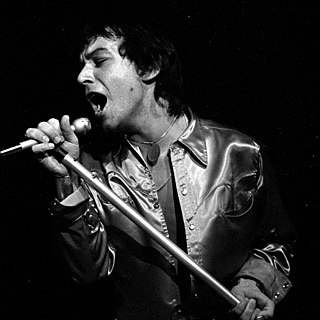A Quote by Amish Tripathi
The distance between Evil and Good is a vast expanse in which many can exist without being either.
Related Quotes
It is due to neither impotence nor ignorance on God’s part that evils occur in the world, but it is owing to the order of his wisdom and to the greatness of his goodness, whence come the many and divers grades of goodness in things, many of which would be lacking were he to allow no evil to exist. Thus there would be no good of patience without the evil of persecution, nor the good of the preservation of its life in a lion, without the evil of the destruction of the animals on which it lives.
The true secret of natural goodness lies in the recognition of the contending rights of the Pairs of Opposites; there is no such antimony as between Good and Evil, but only balance between two extremes, each of which is evil when carried to excess, both of which give rise to evil if insufficient for equipoise.
In her previous novels, Maggie O'Farrell has often measured the distance between intimates and the unexpected intimacy of distance - geographic, temporal, cultural. In 'The Hand That First Held Mine' and 'The Distance Between Us,' characters separated by many miles or many years turn out to be joined in ways they never anticipated.
In this world, there is no absolute good, no absolute evil," the man said. "Good and evil are not fixed, stable entities, but are continually trading places. A good may be transformed into an evil in the next second. And vice versa. Such was the way of the world that Dostoevsky depicted in The Brothers Karamazov. The most important thing is to maintain the balance between the constantly moving good and evil. If you lean too much in either direction, it becomes difficult to maintain actual morals. Indeed, balance itself is the good.
Ideas are easy to come by, they spring effortlessly out of the vacuity of the mind and cost nothing. When they are held and projected onto one's self or others they become a project. When the project is enacted it becomes the work, and when the work is completed it appears to be self-existent. Creation is the process of form manifesting from emptiness, where that which arises from the mind comes into existence. Yet the distance between conception and realisation may be enormous, as vast as the distance between the stars.
When the sacred manifests itself in any hierophany, there is not only a break in the homogeneity of space; there is also a revelation of an absolute reality, opposed to the nonreality of the vast surrounding expanse. The manifestation of the sacred ontologically founds the world. In the homogenous and infinite expanse, in which no point of reference is possible and hence no orientation can be established, the hierophany reveals an absolute fixed point, a center.
Evil denotes the lack of good. Not every absence of good is an evil, for absence may be taken either in a purely negative or in aprivative sense. Mere negation does not display the character of evil, otherwise nonexistents would be evil and moreover, a thing would be evil for not possessing the goodness of something else, which would mean that man is bad for not having the strength of a lion or the speed of a wild goat. But what is evil is privation; in this sense blindness means the privation of sight.
When anything is in the presence of evil, but is not as yet evil, the presence of good arouses the desire of good in that thing; but the presence of evil, which makes a thing evil, takes away the desire and friendship of the good; for that which was once both good and evil has now become evil only, and the good has no friendship with evil.

































